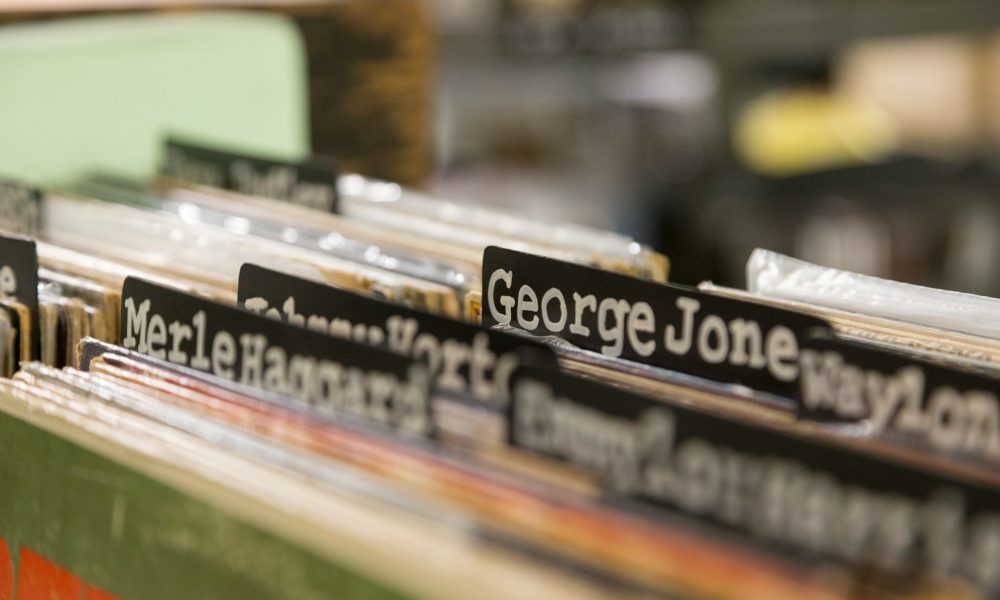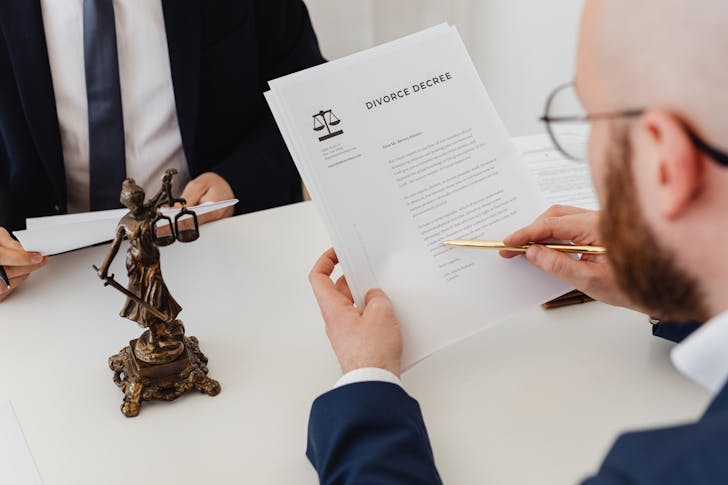
Are Divorce Records Public and Can Anyone Access Your Decree Absolute in the UK?

Navigating the aftermath of a divorce can be complex and emotionally taxing, not least because of the paperwork involved. Are divorce records public? This article will explore whether anyone can access your divorce and decree absolute records in the UK.

Karolina Grabowska | Pexels | Obtaining a copy of a decree absolute is relatively straightforward if you know where the divorce was finalized.
Are Divorce Records Public in the UK?
Since 1858, when divorce became more accessible, many have wondered about the privacy of such records. Today, are divorce records public? Absolutely. Once the decree absolute—the final legal document confirming the dissolution of marriage—is issued, it becomes a public document. This means that just like birth or death certificates, anyone can request a copy of a decree absolute.
This public accessibility ensures transparency and allows individuals to confirm the legal status of their relationships, which can be crucial for legal and personal reasons. However, while the decree absolute is public, the details of the proceedings, such as accusations of unreasonable behavior, are kept private unless the divorce was uncontested.
Where Are Divorce Records in the UK Filed?
Finding where divorce records are kept can be crucial for accessing them. The records of divorces in England and Wales from 1858 to 1937 are housed in the National Historical Archive. Post-1937 records are kept at the county registrar’s office and historical archives. If you’re looking into a divorce in Scotland, you’ll need to reach out to the National Records of Scotland. Meanwhile, for Northern Ireland, inquiries should be directed to the specific court that granted the divorce, such as the Royal Court of Justice in Belfast or a local county court.

Valentino Funghi | Unsplash | Post-1937 divorce records are kept at the county registrar’s office and historical archives.
Knowing the location of these records is essential for conducting thorough searches, particularly if legal or genealogical research is required.
What Divorce Records in the UK Are Public?
While the decree absolute is available publicly, other documents within a divorce file, like the petitions or the decrees nisi, are not. Public records typically include basic yet essential information such as the parties’ names, the date and place of marriage, and details of the court that granted the divorce. This ensures that while access to information is available, privacy regarding the specifics of the divorce case is maintained.
How Do I Find a Copy of My Divorce Records?
Obtaining a copy of a decree absolute is relatively straightforward. If you know where the divorce was finalized, you can directly contact the court, which may involve a small administration fee. If the exact court date is unknown, courts can search a range of dates around your estimated timeframe. For broader searches, the Central Family Court can conduct a nationwide search for an additional cost.
How Long Do Solicitors Keep Divorce Files?
If you’re struggling to find your divorce records through public archives or courts, another option is to contact the solicitor who represented you. Solicitors are not bound by specific rules on how long they must keep files; this decision is up to the principals of the firm, following the Solicitors Regulation Authority’s Code of Conduct. Thus, if your divorce was relatively recent, your solicitor might still have the files on hand.

Pavel Danilyuk | Pexels | If you can’t find your divorce records through public archives or courts, contact the solicitor who represented you.
Conclusion
So, are divorce records public? Yes. But it’s important to understand what specific information is accessible to the public and what remains confidential. Knowing how to navigate the locations and processes for accessing these records can significantly ease the task of obtaining vital documents from a particularly challenging time in one’s life. Whether for legal verification, genealogical research, or personal closure, understanding and accessing divorce records is crucial for many individuals moving forward after a divorce.
More in Law Degree
-
Shakira’s $15 Million Spanish Tax Fraud Case Settlement
In a stunning turn of events, global pop sensation Shakira found herself at the center of a high-stakes legal drama in...
December 18, 2023 -
The Most High-Profile Celebrity Lawsuits of All Time
Welcome to the other side of Hollywood’s velvet curtain, where fame and drama collide in courtrooms instead of film sets. In...
December 6, 2023 -
A Step-By-Step Guide to Becoming a Real Estate Lawyer
A real estate lawyer specializes in legal matters related to property, from transactions to disputes. They ensure legality in real estate...
December 3, 2023 -
What Is Asylum & How Does It Work?
At its core, asylum is a protection granted to foreign nationals in a country because they have suffered persecution or have...
November 26, 2023 -
6 Reasons Why Sentencing Is Any Judge’s Toughest Assignment
When you picture a judge, you might imagine a stern figure in black robes, gavel in hand, delivering verdicts with unwavering...
November 14, 2023 -
Carrie Underwood Sued for NBC Sunday Night Football’s “Game On”
It is almost ritualistic. As the weekend winds down and Sunday evening approaches, millions across America gear up for a night...
November 12, 2023 -
Why Lawyers’ Productivity Has Increased in Modern Times
Remember the old days when your image of a lawyer might have been drawn straight out of an episode of “Matlock”...
November 5, 2023 -
Paying Down Debts Using Debt Relief Tactics
Debt is like that lingering headache that never seems to go away, no matter how much aspirin you pop. But there...
October 29, 2023 -
Pro Se: Your Right to Represent Yourself WITHOUT an Attorney
The legal system is complex and so, more often than not, people hire a professional attorney to navigate the legal system....
October 21, 2023














